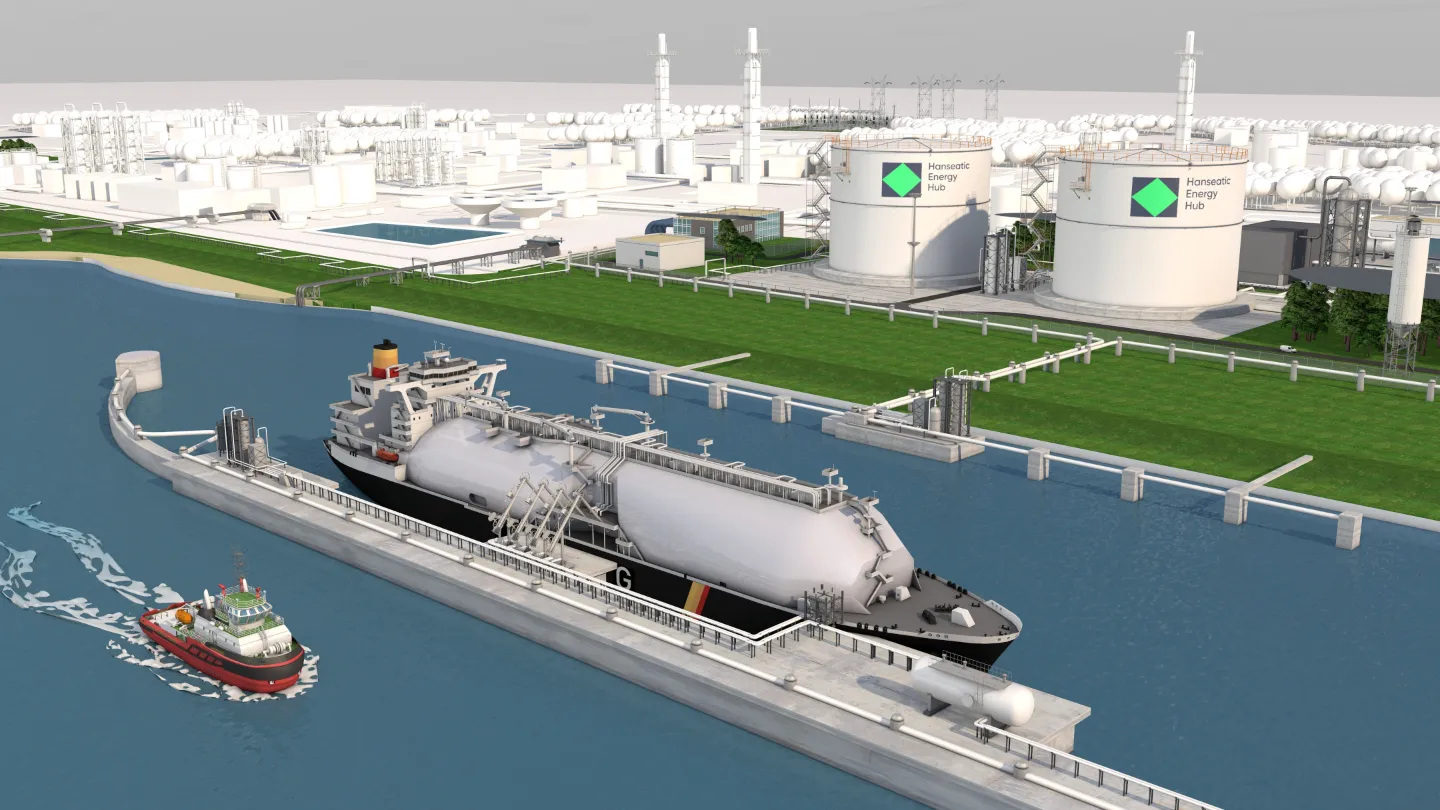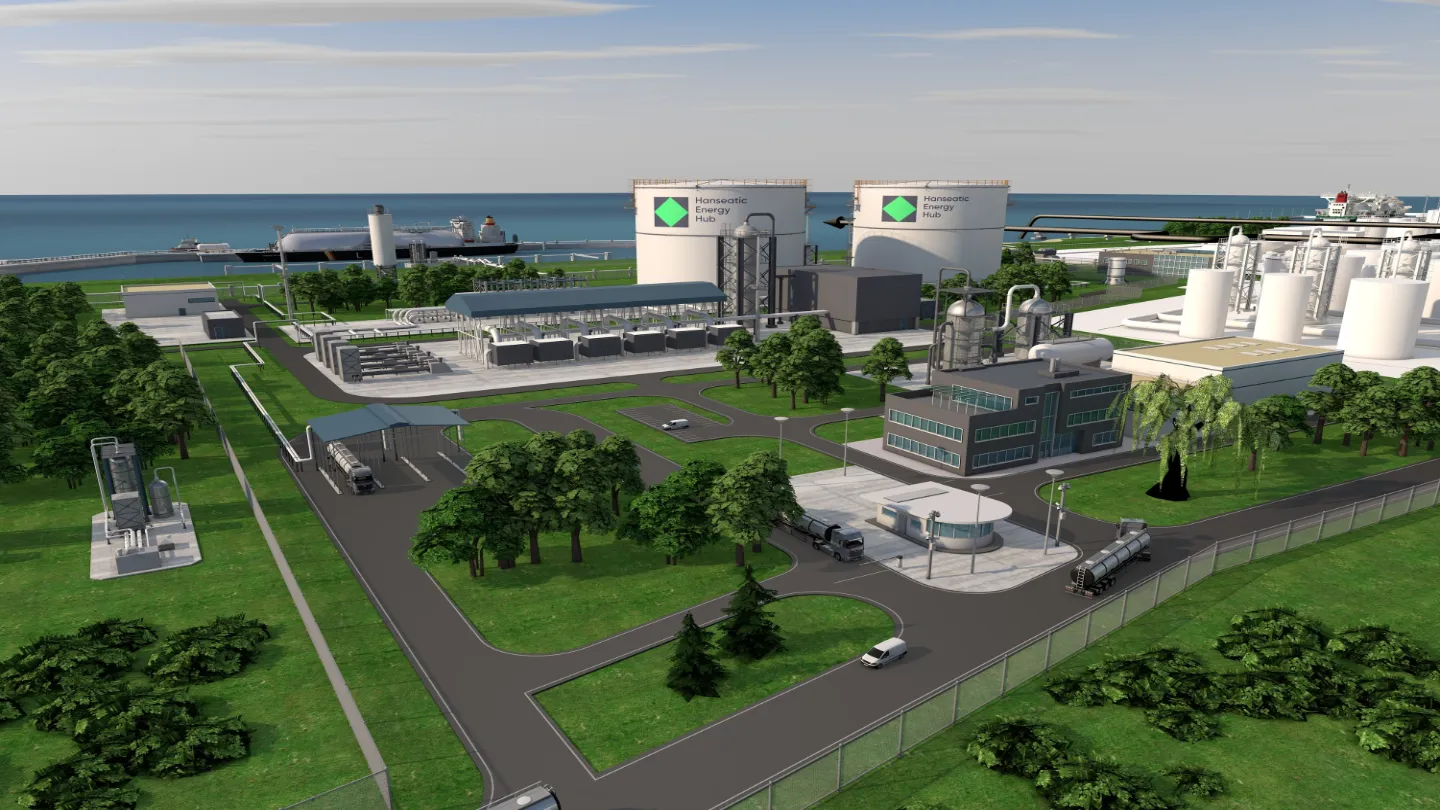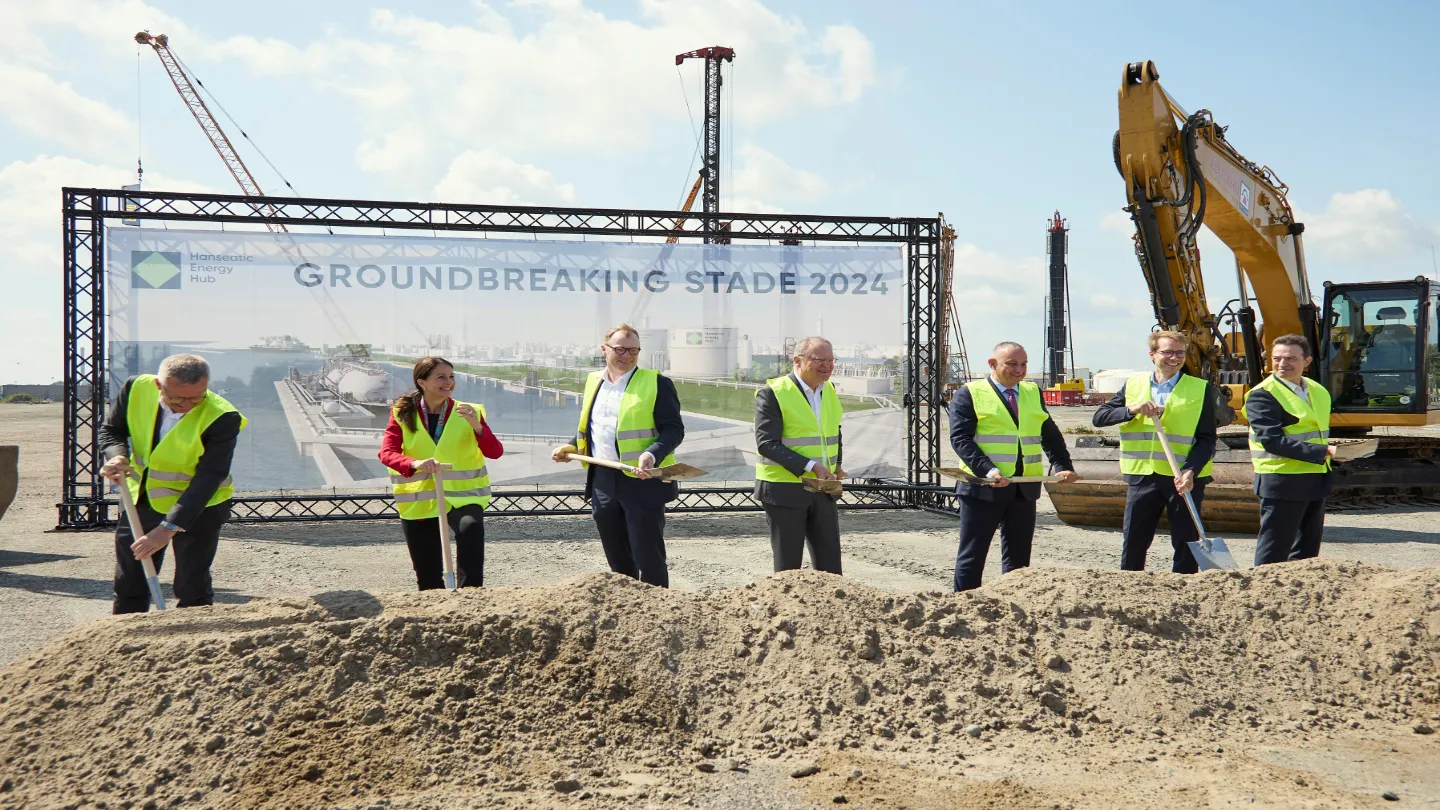The Stade LNG Terminal, also known as the Hanseatic Energy Hub, is Germany’s first land-based liquefied natural gas (LNG) storage and import terminal. It is currently under construction along the Elbe River in Stade, Lower Saxony, near the Port of Hamburg.
The terminal is being developed on a brownfield site within the Dow Industrial Park by the Hanseatic Energy Hub consortium.
The consortium comprises Dow Chemical, a Spanish energy company Enagás (15%, Operator), a Swiss private equity firm Partners Group, and German energy firm Buss Group.
The consortium took the Final Investment Decision (FID) in March 2024, with construction commencing in June 2024. The project is expected to employ over 1,100 people at its peak and aims to be operational by 2027.
Once operational, the zero-emission project will support energy security and an affordable energy supply in Europe.
Hanseatic Energy Hub Background
In August 2020, the Hanseatic Energy Hub consortium signed Letters of Intent with nine global companies, marking the initial steps in the project’s development. By December 2020, Partners Group joined the consortium as a shareholder.
In March 2021, a Belgian infrastructure firm Fluxys became the industrial partner in the development of the project. In June 2023, Fluxys sold its interest in the consortium.
Dow joined the project in April 2022 as a shareholder in the consortium.
The German Lüneburg ‘Gewerbeaufsichtsamt’ Trade Inspectorate approved the early start in January 2023 to prepare the ground for construction. The construction of the new jetty commenced after the approval.
Enagás acquired a 10% interest in the consortium in September 2023, which was approved by the German regulator BNetzA.
In late 2023, the Trade Inspectorate granted the permit to construct and operate the project to the consortium. In December 2023, the Lower Saxony State Agency for Water Management, Coastal Defence and Nature Conservation (NLWKN) granted licences to extract water from the Elbe River for the project.
The consortium received permission from the Trade Inspectorate in January 2024 to construct and operate the Floating Storage and Regasification Units (FSRUs) and connect pipeline systems at the site.
In March 2024, Enagás increased its stake to 15% from 10% and became the operator of the terminal.
Stade LNG Terminal Details
The Stade LNG Terminal will be developed in phases. Initially, it will supply LNG, bio-LNG, and Synthetic Natural Gas (SNG). The project will be green ammonia-ready upon operation commencement.
Two storage tanks with a capacity of 240,000m³ each and related infrastructure will be installed. Five FSRUs were chartered in early 2024 by the German Government, operated by the Deutsche Energy Terminal (DET).
Energos Force, one of the FSRUs, has a regasification capacity of up to 7.5bcm/a. A new jetty will be installed for Energos at the site. The FSRUs will connect to the German gas network via a short pipeline.
The terminal will use Dow’s industrial waste heat for regasification without carbon dioxide emissions.
The process involves cooling gas to -162°C at atmospheric pressure to convert it into liquid. SNG will be produced using power-to-gas technology, generating green electricity stored by electrolysis.
Hydrogen produced from industrial waste heat will be converted into ammonia for transportation. The liquefied gases can be distributed by ship, truck, and potentially by rail in the future.
Contractors and Agreements
In April 2023, a consortium led by the Spanish engineering firm Técnicas Reunidas was awarded the engineering, procurement, and construction (EPC) contract. Other members include Spanish construction company FCC and Turkish engineering firm ENKA’s subsidiary Entrade.
The project scope is divided into two phases: preliminary and engineering works, followed by the main contract. Técnicas will design tanks, FCC will build them, and Entrade will handle electromechanical assembly and provide supervision during commissioning. The contract is expected to be completed by August 2027.
DYWIDAG Concrete Technologies was engaged in 2024 to supply formwork and technical support. In November 2023, an agreement was signed with the Czech energy group ČEZ for 2 bcm/a of natural gas for 15 years, extendable to 25 years. In December 2022, German energy producer EnBW secured 3 bcm/a of natural gas, with an additional 3bcm/a secured in April 2023.
German energy company Securing Energy for Europe (SEFE) secured a regasification capacity agreement in January 2023 for at least 4bcm/a of LNG for 20 years, with a potential extension.





